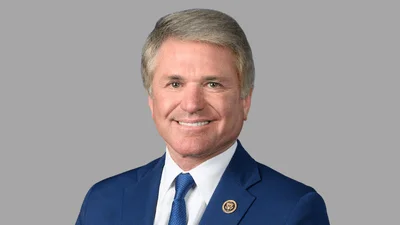Pursuant to statutory requirement, Finance Chairman Baucus today introduced legislation proposed by President Bush to comply with the requirements of the 2003 Medicare Modernization Act. The 2003 law that created the Medicare prescription drug benefit also requires the White House to submit Medicare legislation to Congress if general revenues are predicted to finance at least 45 percent of the program’s expenditures in the next six years.
The Finance Committee has jurisdiction over the Medicare program. As Baucus introduced the required legislation today, his statement for the Congressional Record made clear that the President’s proposal does not have his support. Baucus intends to introduce his own Medicare reform legislation this year, and also to launch a Finance Committee review of health care reform options to deal with rising health care costs - the root of Medicare’s financial troubles.
“I am required by law to introduce the White House’s legislation on Medicare today, but I’m compelled by my commitment to America’s seniors to insist on better solutions," Baucus said. “Where the President’s bill cobbles together ill-conceived or premature proposals to check the box on curbing Medicare costs, I intend for the Senate to consider a carefully crafted, thoughtful package of real improvements to the Medicare program overall - and to spend the rest of this year preparing for a time when real health reform is within our grasp. Working together, we can do better by America’s seniors."
The full text of Baucus’s statement for the Congressional Record is below.
The text of the White House legislation as introduced can be found at:
http://www.finance.senate.gov/
-------------------------------
Statement of Finance Chairman Max Baucus Feb. 25, 2008
Under a provision of the 2003 Medicare bill, the Medicare trustees are required to determine the point at which general revenues will finance at least 45 percent of Medicare’s total outlays. If for two consecutive years, the trustees predict that this 45 percent threshold will be exceeded in the next six years, they are required to issue a
“Medicare Funding Warning," which they did last April. As a result, the law requires the President to submit and Congress to receive a legislative proposal to reduce general revenues as a share of total Medicare spending.
The President has now submitted proposed legislation to Congress in response to the funding warning, and I am therefore required to introduce the President’s proposal. So today, Senator Gregg and I will introduce a Bill to Respond to a Medicare Funding Warning. But I do so while emphasizing that the President’s proposal, contained in this very bill, is not the answer to the Medicare program’s problems.
Everyone agrees that Medicare faces a serious long-term financing problem that must be addressed. But the challenge facing Medicare is not what share of its funding comes from general revenues. The problem is rising health care costs in the health care system as a whole. Medicare’s costs are increasing because costs throughout the health care system are skyrocketing. Addressing the causes of these system-wide costs will be the key to addressing Medicare’s long-term financing.
With health care costs increasing much faster than wages and inflation, Congress must find ways to control these rising costs in order to ensure the long-term financial viability of the Medicare Program. We must also address current Medicare policies - such as overpayments in the Medicare Advantage program - that exacerbate the problem.
While I am statutorily required to introduce the President’s Medicare bill at this time, I still fully intend to pursue real Medicare reform legislation in the coming weeks. That bill will increase access to preventive benefits and primary care, and will improve the quality of care delivered under the program. I will also seek to help low-income seniors with the costs of rising Medicare premiums, and to offer timely, appropriate improvements for the prescription drug benefit.
Beyond advancing a more realistic Medicare reform bill this year, I also intend for the Finance Committee to launch an aggressive look at comprehensive health care reform.
Working together, my colleagues and I will examine the underlying causes of rising health care costs in the entire health care system and explore solutions that can be the foundation for system-wide reform - the only way truly to control costs in the Medicare program.
I am required by law to introduce the White House’s legislation on Medicare today, but I’m compelled by my commitment to America’s seniors to insist on better solutions. Where the President’s bill cobbles together ill-conceived or premature proposals to check the box on curbing Medicare costs, I intend for the Senate to consider a carefully crafted,
thoughtful package of real improvements to the Medicare program overall - and to spend the rest of this year preparing for a time when real health reform is within our grasp.
Working together, we can do better by America’s seniors.
Source: Ranking Member’s News









